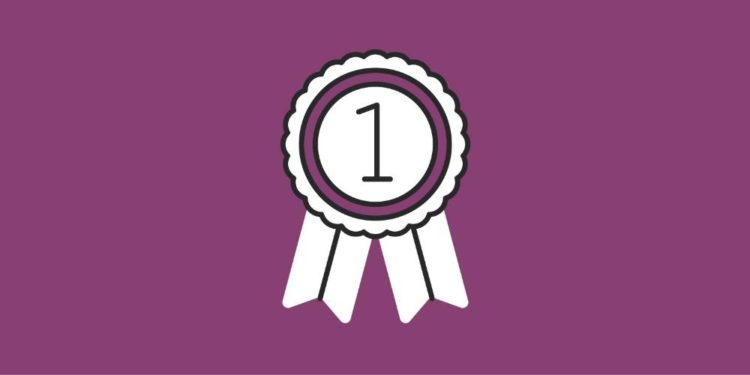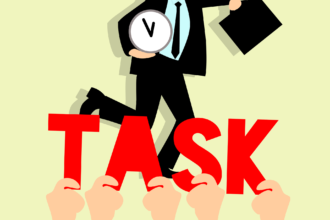10 common email marketing interview questions to prepare for

When it usually come to a job interview, we think that we cannot impress other people because we see the interview as a one-way street with people we hold cards with all questions and answers. But, in reality we all know that this is a two-way conversation. Psychologists advise to prepare for the interview in advance to avoid stress. An important part of interview preparation is to take the time to analyze the job posting if you have it. Read it carefully and prepare a list of questions which you would like to ask a person who applied for this certain position. So, on one hand, while for some job interviewers take a fairly unusual approach to interview questions became very popular, others job interviewers still involve an exchange of common interview questions and answers. And here it is very important to pay your attention to some of the most often-asked behavioral interview questions. Actually, we can divide all types of questions according to the profession. After all, each profession requires the presence of different personality traits and skills. Here are some of the most common interview questions for people who work in Marketing, along with the best way to answer them:

https://content.myemma.com/blog/10-common-email-marketing-interview-questions-to-prepare-for
Congratulations, you’ve landed an interview for a position in email marketing! Now what?
Email marketing is a field that combines strategy and creativity, organization and communication. It’s an ever-evolving field that attracts a diverse group of incredible people like you, which usually adds up to some pretty interesting and fun coworkers. But to get to that point, you have to ace the interview first—and that’s exactly what we’re here to help you do.
Because email marketing positions span a variety of skills and the ideal personality traits needed for the job can vary from company to company, it’s best to over-prepare for your interview and anticipate anything you may be asked to do to prove your professionalism.
Of course, you’ll want to wear a presentable outfit, provide some samples of your previous work, and make sure your resume is up-to-date—but the most important part is to do everything you can to impress your interviewer while you’re with them face-to-face.
First, market yourself
Regardless of the specific role, any position in the field of marketing is an opportunity to show off what you do best by marketing yourself.
Don’t wait for the HR representative or hiring manager to ask for references or work samples to demonstrate your marketing knowledge. The key to successfully navigating an interview in the email marketing industry is to approach the situation with a detailed strategy and plan of attack.
You’re marketing yourself to potential employers while coming up with answers to some of the same questions as you would for a product:
- What is the felt need or problem the company is facing that lead them to open this job position
- How can I fulfill that need and solve the problem?
- Why am I specifically the person for the job?
Do your research
It’s the first step to making almost any kind of plan: Do your research.
Investigate the company you’re interviewing with, study the job description, and look at the type of work they’ve done in the past. Viewing the company as an outsider will give you a unique type of insight that the hiring manager is actually probably looking for.
Don’t be hypercritical, but as you explore the available information, identify some gaps or opportunities that appear obvious, then build your “marketing strategy”—AKA interview gameplan—around the solution: you.
What they ask: Tell us a little about yourself.
What they’re really asking: “Why are you here?”
What they don’t want to know: The extracurricular activities you were a part of in college, your family history, a timeline of every job you’ve ever had.
What they do want to know: A short summary that highlights resume points they already know about you—that’s why they called you in, after all—complemented by poise and professionalism that shows aspects of you they haven’t seen before.
Insider tip: Don’t stray from the script here. You’re probably going to feel like your personal elevator speech is a little boring, but that’s because it’s all old news to you. Keep in mind that this is the first time your interviewer is hearing this, and pump yourself up beforehand with a fresh enthusiasm for delivering it.
What they ask: What do you know about [our company]?
What they’re really asking: Have you done your research?
What they don’t want to know: If you don’t know anything about the company and didn’t even do a quick Google search from the parking lot. Nothing is more uncomfortable, on both sides of the interview.
What they do want to know: Anything that stuck out to you about the company, why you’d like to work there, how you could see yourself fitting in, concrete examples of statistics, programs, etc. that you admire about the organization, your consumer experience with the company.
Insider tip: When you’re researching the company, gather three topics that you can ask questions about or reference in conversation to prove you’ve done your due diligence.
What they ask: “How do you measure success?”
What they’re really asking: Can we count on you to help us reach our goals?
What they don’t want to know: A whimsical and lengthy answer about your personal goals and the meaning of life.
What they do want to know: Tangible examples of times you noticed the need for measurement, chose a measuring tool, and made adjustments based on the results. In email marketing, this can be both big-picture, like which analytics and measurements you believe to be most helpful, as well as your goal-setting technique for a specific project.
Insider tip: Examples of your success are always a good thing to have in your back pocket, no matter the question. By thinking through a few stories and situations you want to highlight beforehand, you can relate it to almost any situational question they throw your way.
What they ask: What companies do you follow that do email well?
What they’re really asking: Are you familiar with our industry and do you have good taste?
What they don’t want to know: Compliments about their own company. In most scenarios, this will be seen as a cop-out and like you maybe aren’t as invested in the email marketing industry as much as your resume lead them to believe.
What they do want to know: Your real opinions and specific campaign examples. Don’t waste time trying to name drop the right companies—this question is about you, remember. What did your examples do to make their email campaigns memorable?
Insider tip: Glance over your email inbox before the interview. Take note of what you’ve opened and keep those examples at the top of your mind walking in the door.
What they ask: What’s your general workflow like?
What they’re really asking: Are you organized and independent?
What they don’t want to know: About your micromanaging boss and how you wait for her to give you direction at every step.
What they do want to know: How you generally approach a project from start to finish. Where do you start? When is it time to collaborate with others? How do you stay organized and on top of deadlines?
Insider tip: Run through this one a few times when you practice, because there are probably a lot of things you could easily leave out—like note-taking tools and delegation methods—but shouldn’t. This is where you want the hiring manager to walk away feeling confident that you could begin tackling a project for them immediately.
What they ask: What is your favorite email campaign you have created?
What they’re really asking: How would you specifically be an asset to our team?
What they don’t want to know: That you don’t have a favorite, or can’t think of one. Alternatively, that everything you’ve done is your favorite.
What they do want to know: This question is kind of like asking a first date about their family. By asking you something to describe something you’re passionate about and familiar with, your potential new employer is able to tell whether or not the same skills and enthusiasm would transfer over well to the open position.
Insider tip: Bring examples! Having something to hold in your hands and point to as you talk will take their eyes off you and onto your work, relieving the pressure for a few minutes.
It will also give you a chance to show off details of your success you wouldn’t otherwise be able to communicate, like that awesome logo that was your idea or the witty content your current boss loves you for.
What they ask: What is the most valuable lesson you have learned from A/B testing?
What they’re really asking: Are you open to feedback and eager to improve?
What they don’t want to know: That all of your A/B testing shows that you’re super successful all the time.
What they do want to know: A time that you really listened to the results of an A/B test and changed your methods based on that information.
Insider tip: You don’t need to give an entire company or project history for this example—just a few variables and the overall lesson you learned. Make sure this lesson is also one that could apply to future projects at the company you’re interviewing with!
What they ask: What kind of revenue do you drive using email campaigns?
What they’re really asking: Are you a worthy investment?
What they don’t want to know: An exact number you end up with by taking ten minutes to add up numbers on a napkin.
What they do want to know: That you understand what the end goal of your job is and measures you’ve taken in the past to increase revenue.
Insider tip: Talking about numbers can be uncomfortable, but giving a general ballpark and any percentage increase that specifically applies to your efforts can be helpful.
What they ask: How many emails are you deploying a day?
What they’re really asking: What type of workload are you used to?
What they don’t want to know: An exaggerated answer. You don’t want to walk into unrealistic expectations on your first day.
What they do want to know: The real answer. Even if the number is small, you can use it in the explanation for seeking a new position—you’re ready for a new challenge with extra responsibility!
Insider tip: You can always connect a weakness or past learning experience to the growth opportunity of a new position. It shows self-awareness and motivation to continually improve.
What they ask: What email service providers (ESPs) have you worked with?
What they’re really asking: Do you have experience with our software?
What they don’t want to know: That you have a favorite software and don’t ever want to use anything else.
What they do want to know: That you have experience with ESPs, a general familiarity with the difference between various options, and a willingness to learn a software you may not have an advanced knowledge of.
Insider tip: Try to find out what ESP the company uses before the interview. That way, you’re prepared for this question before it comes.
Ask questions of your own
While you’re practicing for the interview, don’t forget that preparing questions to ask are just as important as those you’ll answer.
If any of the questions above aren’t covered, you can easily turn them around to ask the company about their experience and measures of success.
Additionally, here are a few of our favorite follow-up questions to ask the hiring manager:
- What projects would I be working on in my first 30 days on the job?
- What is one quality you’d say is essential to someone in this position?
- How does this role fit into your company’s long-term plan for success?
Wrap up
Walk into your email marketing interview with confidence. You’ve prepared enough, practiced answering questions, and even have questions of your own to ask the hiring manager. We’re cheering you on! Go get that job!

